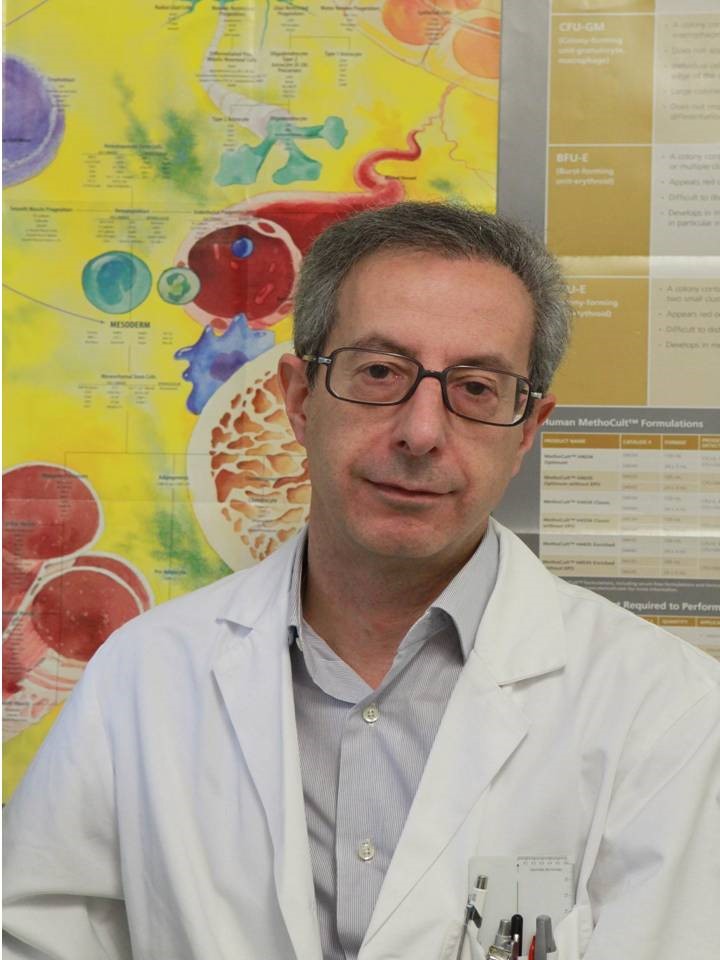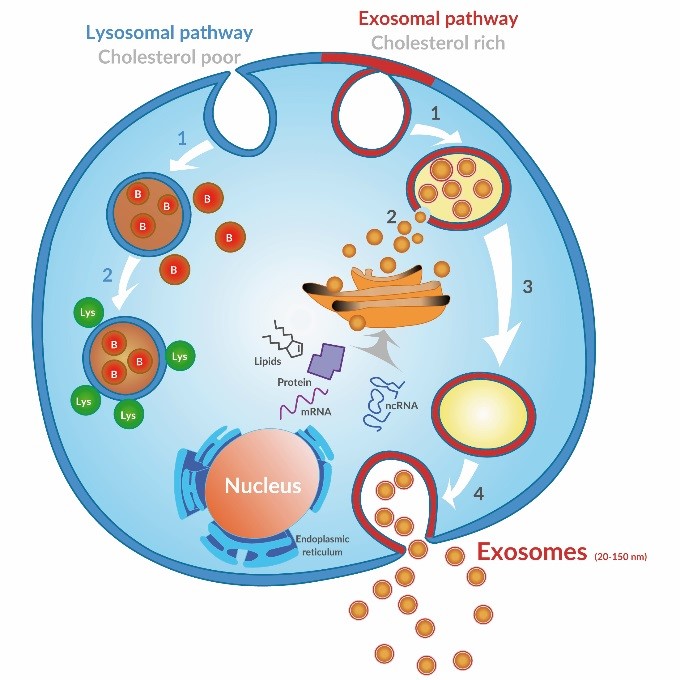Navigation auf uzh.ch
Navigation auf uzh.ch

Extracellular vesicles are secreted by virtually all cells into the circulation and transmit biologically messages from the cells that secrete them to those that receive them. As such, they regulate all biological processes including cardiac and vascular function. For example, these vesicles are increased in the blood of patients very early after the onset of myocardial infarction, as a component of the inflammatory reaction to cardiac injury. However, they also are increased in patients with stable coronary artery disease. The molecular contents, and hence the biological effects, of the vesicles vary as a function of the cell types that secrete them, and of their activation states. Accordingly, while inflammatory cells secrete vesicles that mediate inflammatory activities, stem and progenitor cells release vesicles that mediate beneficial effects with respect to tissue protection, repair, and regeneration. The laboratory aims to investigate the role of extracellular vesicles in the development of cardiovascular diseases, and to discover novel therapeutic applications based on these vesicles.
